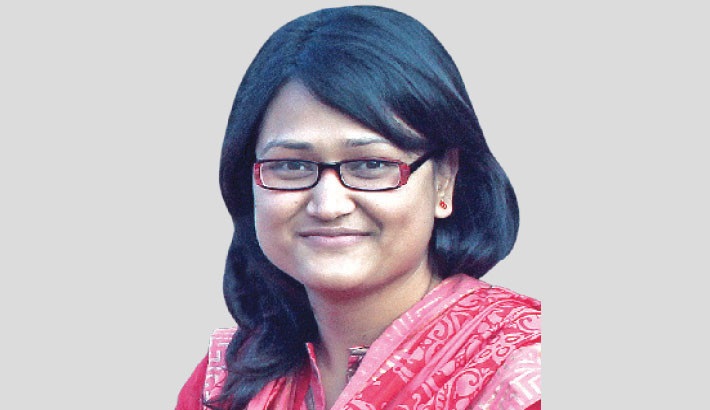Perfectly Imperfect Gen Z Redefining Bangladesh
Kaniz Kakon | Source : Daily Sun, 18 January 2025

In an era of societal shifts and digital revolutions, Generation Z in Bangladesh is redefining authenticity by embracing imperfection as a symbol of individuality, creativity and connection. Unlike their predecessors, who aspired to perfection dictated by rigid societal norms such as academic excellence, conventional beauty standards and traditional career paths, this generation is challenging these ideals and carving out space for vulnerability and self-expression.
Growing up in a time of rapid technological advancements and cultural evolution, they have leveraged social media platforms like Facebook, Instagram and TikTok to share unfiltered stories of mental health struggles, career uncertainties and personal failures. By doing so, they are not only rejecting the perfection trap but also normalising imperfection, fostering empathy and reshaping how young Bangladeshis perceive success, relationships and self-worth.
Social media has become a transformative force in reshaping how Gen Z in Bangladesh views and shares their lives, moving away from the idealised, filtered images that once dominated platforms like Instagram. By embracing hashtags like #RealMe or #ImperfectlyPerfect, young influencers are championing authenticity and fostering a culture of unfiltered self-expression.
From no-makeup selfies to candid admissions of failures or struggles with anxiety, they are redefining the online narrative, seeking genuine connections rooted in shared humanity rather than polished facades. However, the shift is not without its complexities, since the pressure to present an ‘authentic’ self can feel just as demanding as the pursuit of perfection. Despite this, the broader movement towards vulnerability and openness on social media is empowering Bangladeshi youth to use these platforms as spaces for self-expression, empathy and community building.
In Bangladesh’s traditionally competitive education system, where perfectionism has long burdened students with the pressure to excel in fields like medicine, engineering, or government services, Generation Z is challenging these rigid norms by exploring alternative career paths that prioritise passion and creativity over societal expectations.
Young entrepreneurs in Dhaka’s emerging tech and creative industries are embracing trial and error, demonstrating the value of innovation over perfection, while educational institutions, influenced by this generation’s openness, have begun to recognise the importance of mental health and self-care. This shift is fostering a culture that acknowledges failure as a natural part of growth, paving the way for a healthier and more balanced approach to education and work.
The philosophy of imperfection has deeply influenced Bangladeshi art and culture, with young artists embracing the beauty of flaws and incompleteness, drawing inspiration from global movements and local traditions. This resonates with the Japanese concept of “wabi-sabi”, which finds value in imperfection and impermanence, mirroring the everyday realities of life in Bangladesh.
Musicians are shifting towards raw, acoustic sounds over polished productions, sharing minimally edited work on platforms like YouTube and Spotify to prioritise authenticity. In visual arts, handmade imperfections are celebrated as unique expressions of individuality and emotional depth, reflecting a broader cultural shift towards embracing the imperfect.
Generation Z in Bangladesh is redefining human rights in ways that resonate with Shoshana Zuboff’s concept of the “age of surveillance capitalism” and Judith Butler’s theories on “performativity and identity”. Zuboff’s insights into how digital technologies reshape societal structures align with how this generation uses social media platforms to subvert traditional ideals of perfection, leveraging the digital sphere to create spaces for vulnerability, self-expression, and the normalisation of imperfection.
Meanwhile, Butler’s work on identity as a fluid and performative construct sheds light on how Gen Z in Bangladesh is actively challenging rigid societal norms around success, beauty and career paths, constructing identities rooted in authenticity rather than conforming to preordained roles. By sharing unfiltered stories of mental health struggles, career uncertainties, and personal flaws, they assert the right to be imperfect and human in an age dominated by hyper-curated digital personas. This act of redefining identity and success, both online and offline, positions imperfection as a core aspect of their human rights narrative—one that values empathy, inclusivity and the freedom to challenge entrenched norms while embracing diversity and individuality.
Like a river carving its way through unyielding rock, the movement towards imperfection among Bangladesh’s youth flows with determination, reshaping societal landscapes long defined by rigidity and conformity. This embrace of flaws and uncertainties challenges the entrenched norms that have historically prioritised polished ideals over creativity and authenticity, redefining what it means to succeed.
Older generations, bound by traditions steeped in the pursuit of flawlessness, often perceive this shift as unsettling or even rebellious. Yet for Generation Z, it is a necessary act of self-liberation—an assertion that humanity’s strength lies not in its perfection but in its resilience and capacity for growth.
They have turned ‘wrong turns’ into new paths, transforming missteps into stepping stones, and find beauty in the jagged edges of their journeys. In a rapidly modernising Bangladesh, their philosophy of imperfection becomes both a rebellion and a remedy, confronting the pressures of conformity with vulnerability and empathy.
This shift is more than personal; it is societal, weaving a narrative where flaws become textures of individuality, and vulnerabilities build bridges that connect diverse experiences. By celebrating these imperfections, they create a culture that values resilience over rigidity, connection over isolation, and authenticity over artificial perfection, laying the foundation for a more inclusive, compassionate, and dynamic future.